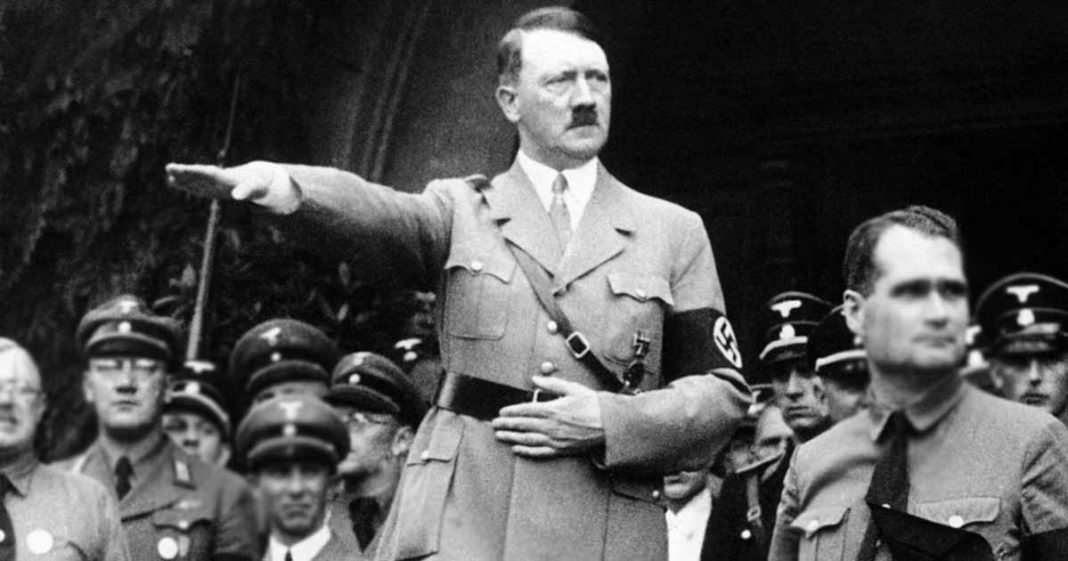The failure of the far-right Kapp Putsch in Berlin, which lasted from the 13th to the 17th of March 1920, unfortunately, did not discredit the new Nazi ideology taking root in Germany. The Nazi seed was sown primarily because of the destabilizing effects of the First World War (1914-18) on German society, and resultant legislation such as the Treaty of Versailles, as the revolution was breaking out in Germany from late 1918.
The Kapp Putsch’s rapid demise, mainly due to the conspirators’ incompetence, meant that the fascist elements in Germany had suffered a blow and not a heavy one at that. Had the Kapp Putsch endured over a longer period, for weeks rather than days, the Western Allies would have been compelled to send their troops into the heart of Germany: so as to remove the coup’s nominal leader, Dr. Wolfgang Kapp, a far-right civil servant and politician, and General Walther von Lüttwitz, a future supporter of Adolf Hitler and a commander of note during World War I, who represented the military force and real power behind the putsch.
Read more: USSR vs Nazi Germany: Good against evil?
Understanding the matter better
France, in particular, could not have accepted a military dictatorship being established in Berlin in 1920. World War I had ended less than 2 years before, in which the French Army had suffered such a high loss of life against the German Army (French casualties amounted to 1,624,000 in 1915 alone). The French last of all would be inclined to show leniency to their old adversary the Germans.
A Franco-British intervention in Germany in 1920 would, in all probability, have led to the permanent tarnishing of German fascist influence, political and military, which had underlined the Kapp Putsch. Men like General von Lüttwitz, who was a fiery Prussian and overall commander of the German paramilitary formations (Freikorps), would have chosen to fight back against an Allied attack on German soil and, not having enough soldiers or arms, von Lüttwitz’s forces could only face defeat.
Historian Donald J. Goodspeed wrote, “As it turned out, the ideas of the rebels were by no means discredited. Their coup [Kapp Putsch] had failed, but nothing less than decisive and bloody retribution would have persuaded these gentlemen to change their minds. When nothing of the sort was forthcoming, they regained their spirits. What was one failure more or less? Was it not true that the seed is not quickened except it dies? And so, for the next 13 years, their revolutionary nationalism germinated darkly in the German soil”.
Destroying Nazism through the force of arms
The Western Allies failed to learn this lesson in 1920, 1933 and 1938. The Kapp Putsch folded so quickly that the far-right influence behind the coup was barely noticed by Germany’s public. The Kapp Putsch was supported from the outset by General Erich Ludendorff, who was present in the Reich Chancellery (Chancellor’s building) in Berlin with the conspirators, after the coup initially succeeded on 13 March 1920, the day in which the Weimar Republic’s political leadership fled Berlin and moved south to Stuttgart. The Weimar Republic had been established as the government of Germany in November 1918.
General Ludendorff, who would become a figurehead for the radical right, was the German Empire’s military dictator from August 1916 to October 1918, in the latter half of World War I. During his autocracy Ludendorff, an intelligent, strong-willed and ruthless man, dominated both his close colleagues Field Marshal Paul von Hindenburg and Kaiser Wilhelm II. Under Ludendorff’s generalship, for example, the Germans came close to overcoming the French, British and American divisions during the Ludendorff offensives, of the spring and summer of 1918, but the enemy’s numbers were just too large.
Read more: How Nazi Germany benefitted America’s corporations
In his biography of Ludendorff, Goodspeed described the general as “one of the very greatest military organizers of all time”. For some years prior to World War I, Ludendorff was well regarded within the German Army for his abilities as a staff officer. According to Goodspeed, Ludendorff “became an extraordinarily important staff officer”. This was because, in the months leading up to the outbreak of fighting in Europe in August 1914, he had been centrally involved in strategic war planning at the highest level in the German Army.
When the conflict was finally ending in November 1918 Ludendorff, vulnerable in his unguarded west Berlin apartment and fearing assassination from communist militants, left his residence after nightfall. He disguised himself by wearing a hat, a fake beard and blue spectacles. Ludendorff moved nearby to the southwest of Berlin to Potsdam, where he stayed for a few days at the house of his younger brother, Hans Ludendorff, a well-known astronomer. With unrest increasing across Germany, Ludendorff decided, with some reluctance, that it would be best to leave behind the country which he had ruled with an iron fist for 2 years.
On 16 November 1918 Ludendorff traveled north to Denmark by steamship
In spite of his disguise, he was recognized on the boat by some of the passengers. When Ludendorff arrived at the port at Copenhagen, the Danish capital, a crowd of onlookers was waiting to see the man who had almost conquered most of mainland Europe. Ludendorff felt that he was being followed everywhere he went in Copenhagen, so in late November 1918, he relocated again, this time to southern Sweden. He was granted residence with a pro-German Swede, Herr Dolson, who lived in a country house near the town of Hässleholm.
From Sweden, Ludendorff wrote to his wife Margarethe who had remained in Berlin, “For 4 years I have fought for my country and now, when so much is hanging in the balance, I must stand aside… Tell everybody how like my fate was to that of Hannibal. That will teach them to understand”. Hannibal was a legendary Carthaginian general who went into voluntary exile in the year 195 BC, in order to evade the Romans.
Ludendorff’s presence in Sweden could not be concealed. Before long the Swedish Social Democrats, to Ludendorff’s irritation, were demanding that the general be expelled from Sweden. He was offered sanctuary in Finland. However, in early 1919 the German paramilitary units, who comprised mostly of World War I veterans, were well on their way to “restoring order” back home. In other words, the German left-wing groups and revolutionaries were being subdued.
Read more: Op-ed: How British, US links increased with Nazi Germany during Hitler’s power
By the spring of 1919, the paramilitary formations in Germany consisted of over 400,000 men, and for the large part they wanted a restoration of the old order. Ludendorff believed it was safe to return to Germany, which he did at the end of February 1919. On arriving back in Germany after 3 months away, because of his famous name Ludendorff did not suffer from the financial hardships which afflicted so many other German officers at this period. When he got to Berlin, Ludendorff and his wife were given a suite at the prestigious Adlon Hotel, located in Berlin’s city center.
The Adlon Hotel also happened to be the headquarters of the Allied Disarmament Commission. To avoid publicity the 54-year-old Ludendorff now went by the name of “Karl Neumann” and the hotel’s owner, Lorenz Adlon, provided him with a separate exit from the building to the Wilhelmstrasse (Wilhelm Street), allowing him to avoid those he did not wish to see.
In actual fact, Ludendorff had no problem engaging in conversation with Allied officers, specifically the British, the French he liked less. In turn, the English officers were curious to meet the man whose military capabilities they had admired. Among those who Ludendorff dined with at the Adlon Hotel was Major-General Neill Malcolm, Chief of the British Military Mission to Berlin.
Ludendorff told Malcolm that Germany had been unable to secure victory in the war, due to the weakness of the German politicians. They had, Ludendorff said, failed to support him sufficiently and “proved themselves unworthy of their warrior ancestors”. Malcolm replied, “Are you trying to tell me, general, that you were stabbed in the back?” On hearing this Ludendorff became excited and he shouted, “That’s it! They stabbed me in the back! They stabbed me in the back!” The phrase, “stabbed in the back”, would soon be used widely as propaganda by the radical right in Germany.
For his own peace of mind, Ludendorff was trying to explain away defeat
He could not accept after the German Army had won many battles, that they ultimately lost the war militarily. He was not alone in this. Millions of Germans, who were proud of their country’s history of arms, could not attribute the defeat to military causes. Ludendorff reproached himself in one regard. “I ought never to have let myself be dismissed” he used to say, reminiscing on his resignation as Germany’s warlord on 26 October 1918.
Through 1919, Ludendorff could see the extent of the armed German presence on Berlin’s streets, and he began to believe that his country’s greatness could be restored. Speaking contemptuously of the leftist forces, Ludendorff declared repeatedly, “The greatest blunder of the revolutionaries was to leave us all alive”.
The Versailles Treaty signed in Paris on 28 June 1919 was not only a very harsh document, stripping Germany of territory and ordering her to pay unsustainable reparations, but it was also an enormous gift to the extreme right German factions. By injuring and humiliating the Germans through the Versailles Treaty, the French, British and Americans were playing into the hands of the extremist groups.
Read more: How US supported Mussolini’s fascism in Italy
It has been stated, in Western scholarship, that Ludendorff had a considerable role in the rise of Hitler and the Nazis. Yet the Versailles Treaty, in reality, performed a significantly greater part in Hitler coming to the fore than anything which Ludendorff could do. Overlooked is that Ludendorff had fallen out with Hitler by the late 1920s, before the latter threatened to take power.
On top of the Versailles Treaty, another decisive factor behind Hitler’s ascent was the Wall Street Crash of the autumn of 1929, which was the detonator that set off the Great Depression (1929-39). This unprecedented financial disaster hit Germany especially hard in the early 1930s, convincing many millions of unemployed Germans to vote in elections for the Nazi Party.
What was the major cause behind the Great Depression occurring? The First World War. Overproduction, caused by that conflict, had depressed global prices, and because of war debt payments, most of the world’s gold supply was concentrated in America. From 1918, many of the smaller European countries adopted a short-sighted economic nationalism. Formerly rich nations like Germany, Austria and France had seen much of their wealth disappear, while reparations payments damaged the economies of the recipients more than the donors. The explosive mass which resulted in the Great Depression had been building since the end of World War I.
Shane Quinn has contributed on a regular basis to Global Research for almost two years and has had articles published with American news outlets People’s World and MintPress News, Morning Star in Britain, and Venezuela’s Orinoco Tribune. The views expressed in the article are the author’s own and do not necessarily reflect the editorial policy of Global Village Space.














